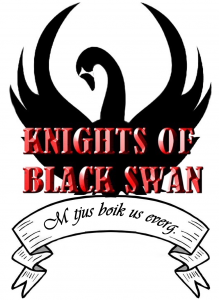When I first heard the idea that PNR is on the way out, I dismissed it. I may have even dismissed it with an audible snort. Now, however, I’ve heard this advanced enough times that I feel compelled to address it in a more serious way.
First, let me begin by saying that, in the 50’s, the general consensus among people over the age of seventeen was that rock and roll was an overnight fad that was on the way out. Sixty years later my band is still rockin’ it out in Classic fashion and sometimes we get to play for big crowds like Warrior Dash.
Did rock and roll die? Of course not. Did it change? Oh yeah.
And it kept on changing and changing and reinventing itself. (Even people who are not rockers like Muse “Uprising”. I particularly love the last line of the chorus: We will be Victoria’s.) If Buddy Holly had lived, he would have had to change or perish because the glory of musical relevance is fleeting.
The moral of this story is this. Anne Rice broke ground. Kresley Cole and Karen Marie Moning broke ground. If more authors don’t stop the vamp-by-number, more-weres-the-better rehash and try for something different, then PNR is going to end up being recalled as fondly as rockabilly. We (musicians) love it (for a few minutes at a time) and honor it (for its place in rock history), but are we going to buy it or play it? No.
Before I started writing I spent two full years reading every PNR that had enjoyed any success so that I could know what had already been done. Then I set out to create something apart.
I get a lot of feedback that starts by saying, “I don’t really know what genre to put this in…” Those comments make me want to jump up and do a little victory dance. My idea of a great day is a review that says something like, “She explodes stereotypes.” I guess my work is a fusion between paranormal, fantasy, and scifi. That would make sense because I was steeped in a pop culture ripe with these influences.
Second, we need to redefine PNR so that everybody agrees on what it means. I’m writing true Paranormal Romance. It’s not paranormal suspense or paranormal mystery or paranormal thriller with a love interest back story. Kim Harrison and Patricia Briggs do not write Paranormal Romance. Their books are fun, exciting, sometimes thrilling, but they are not PNE. In order to be a subgenre of romance, the romance has to be the story. You can’t say John Gresham writes legal romances because there’s a love interest thread in a subplot.
All this is to say that if PNR is defined as primarily romance, then we’re not in trouble because, so long as there are women, there will be fantasizing about romance.
What do I see as the biggest threats to PNR? That would be who not what. The biggest threats are Stephanie Meyer (Twilight series) and E.L. James (Fifty Shades). Stephanie Meyer’s success has some of PNR’s most talented writers switching to YA. E.L. James’s success has PNR authors in a headlong dash toward the erotica cliff. (That’s erotica with an “a” at the end.) I don’t have to be psychic to know that’s a dead end.
Will I switch genres? No. I want to write what I write more than I want celebrity or wealth.

Leave A Comment